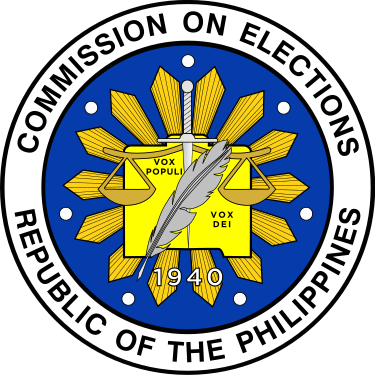NEWS
Protect democracy by fighting disinformation

February 27, 2022 7:56 p.m.
FILIPINOS can do their part in upholding our democracy not only by voting for the right candidates but, in this age of technology, fighting disinformation that distorts people’s ability to make sound decisions, panelists in a virtual town hall discussion said Tuesday.
During the launch of Vote Right 2022, a campaign of advocacy group Democracy Watch Philippines in partnership with the Commission on Elections, Bishop Pablo Virgilio David, president of the Catholic Bishops Conference of the Philippines, characterized the conscientious voter as someone who possesses an open mind, actively searches for the truth, and who puts an effort into discerning which input from social media must, and must not, be believed.
A good and responsible citizen votes according to one’s conscience, he said.
“This is the candidate who will preserve and strengthen democracy, follow the law, respect human dignity, defend our territory in a peaceful but firm way, and rectify the culture of corruption in government,” Bishop David said.
Meanwhile, Stratbase ADR Institute president Professor Victor Andres “Dindo” Manhit pointed to the apparent disconnect between what voters say they want in a candidate and who are emerging as frontrunners in early surveys – a phenomenon that’s best explained by the prevalence and power of fake news.
“Today’s social media space is infected with the pandemic of disinformation, perpetrated by forces who need to distort historical facts,” he said.
Manhit pointed out that next to television, the Internet is the second most influential source of election information. The ordinary information consumer, however, does not necessarily fact check articles he or she sees online.
“The truth must be told. It must be told again and again so it does not drown in the well-funded deluge of lies and disinformation,” he said, as he conjured a governance scenario produced by an election decided by disinformation.
“Voter education today must combat disinformation with untiring passion and resolve,” he said.
Meanwhile, Myla Villanueva, chairperson of the Parish Pastoral Council for Responsible Voting, emphasized that the work they do is critical to maintaining the credibility of elections.
“The young people may not remember this, but in the days of manual elections, wholesale cheating was happening in the canvassing where 2000 votes become 20,000 or sometimes, they would remove from one candidate and add to another in very big fashion.”
The PPCRV is legally empowered by the Commission on Elections to perform unofficial parallel counts, conduct voter education and registration campaigns, and be part of the voters’ assistance desk.
A big part of the PPCRV’s work is engaging the youth, especially encouraging first-time voters to take part in elections.
Commission on Elections spokesman and director for Education and Information James Jimenez meanwhile emphasized the ultimate benefits of an automated system which eliminates structural advantages such as perceived bailiwicks and command votes.
He also spoke about how the faster counting now eliminates any window of opportunity for dagdag -bawas (vote padding and shaving), and how the prompt release of election results protects election workers and potentially defuses tensions in hotly contested areas.
“When people no longer have time to condition the minds of the public to accept a predetermined result, then you have a fair environment for the elections where the election result is easier to accept for everyone,” Jimenez said.
While a lot of the success of the 2022 election depends on voters and their vigilance, “we cannot trivialize the contribution of the automated election system to our safe elections.”
Other speakers at the virtual town hall were Atty. Ona Caritos, executive director of Legal Network for Truthful Elections (LENTE), and Dr. Rachel Khan, associate dean of the UP College of Mass Communication and program coordinator of fact-checking initiative Tsek.ph.
In his closing remarks, Paco Pangalangan, convenor of Democracy Watch, sounded the call for Filipinos to exert due diligence in choosing candidates, to be more conscious of the source and quality of information, adopt a fact-checking mindset, open their senses and appreciate the evidence.
“The future of our nation is worth the effort,” he said.
NEWS
TikTok enhances safety, transparency for Filipino community with new initiatives

7:01 p.m. July 16, 2023
TikTok, the world’s leading short-form video platform, is taking further steps to ensure a safer and more transparent platform for its Filipino community. In response to the evolving digital landscape and the rise of AI-generated content (AIGC), these initiatives are designed to maintain a secure environment, uphold community guidelines, and ensure users can trust the content they encounter on the platform.
Strengthening Community Guidelines Enforcement
As part of its ongoing efforts to safeguard its community, TikTok recently published its Q1 2024 Community Guidelines Enforcement Report. During this period from January 1 to March 31, 2024, TikTok removed 4.26 million videos in the Philippines for violations of its Community Guidelines. Of these, 99.7% were removed proactively, and 95% were taken down within 24 hours.
To further enhance transparency, TikTok updated its Community Guidelines in April to provide clearer rules and introduce new features that help creators understand and comply with policies. Available in English and Filipino, these guidelines include detailed definitions and outline moderation practices for features like Search, LIVE, and the For You feed, ensuring policies are clear and accessible to all users.
Advancing AI-Generated Content Transparency
In response to the increasing prevalence of AI-generated content, TikTok has implemented new measures for transparency. Since May, TikTok has automatically labeled AI-generated content uploaded from specific platforms. This initiative is part of a collaboration with MediaWise, a program of the Poynter Institute, and the Coalition for Content Provenance and Authenticity (C2PA), making TikTok the first video-sharing platform to adopt C2PA’s Content Credentials technology. These labels aim to provide users with clear context about the nature of the content they consume.
Educating the Community with Media Literacy Tools
To support its community in navigating AI-generated content and combating misinformation, TikTok is launching new media literacy resources. Developed in collaboration with experts, these resources are integral to TikTok’s broader strategy to enhance user understanding and foster a more informed community. As part of this initiative, TikTok has partnered with MediaWise to release 12 educational videos throughout the year. These videos aim to teach universal media literacy skills and explain how TikTok’s AI-generated content labels can help contextualize content. This partnership underscores TikTok’s commitment to educating its community and fostering a more informed user base.
Expanding AIGC Labeling Through Partnerships
Building on its efforts to ensure content transparency, TikTok has extended its auto-labeling capabilities for AI-generated content created on other platforms. By integrating the ability to read Content Credentials from C2PA, TikTok automatically recognizes and labels AI-generated content, with plans to expand this to audio-only content soon.
In the coming months, TikTok plans to attach Content Credentials to its content, ensuring transparency even when content is downloaded, allowing users to utilize C2PA’s Verify tool to identify AI-generated content and understand its creation details.
Driving Industry-Wide Adoption
In its mission to promote industry-wide adoption of Content Credentials, TikTok has joined the Adobe-led Content Authenticity Initiative (CAI). As the first video-sharing platform to implement Content Credentials, TikTok is at the forefront of encouraging transparent content practices across the industry. The gradual increase in auto-labeled AI-generated content on TikTok is expected to grow as more platforms adopt this technology, fostering a more transparent digital landscape.
For You Feed and Creator Code of Conduct
To further enhance safety, TikTok has introduced new standards that will temporarily restrict accounts that repeatedly violate content standards. These accounts and their content will be harder to find in search, with creators being notified and given the option to appeal.
Additionally, TikTok published a Creator Code of Conduct outlining the standards expected from creators involved in TikTok programs, features, events, and campaigns. This code reinforces TikTok’s commitment to maintaining a safe and inclusive platform.
Through these measures, TikTok continues to focus on helping its community, especially creators, understand its rules and enforcement methods to ensure a safer experience for its users. By embracing continuous innovation and collaboration, TikTok strives to create a secure and inclusive space for creativity and connection.
NEWS
SM Prime, DTI empower MSMEs with 83 SM mall spaces, training, mentorship


9:15 p.m. July 12, 2024
Good news for Micro-, Small, and Medium-Sized Enterprises (MSMEs)! SM Prime Holdings (SM Prime) and the Department of Trade and Industry (DTI) solidified a partnership through a Memorandum of Agreement (MOA) signing ceremony held on July 1 at the SM Prime Headquarters.
This collaboration empowers MSMEs with prime mall space in 83 SM Malls nationwide, aligning with the One Town, One Product (OTOP) Philippines program. Besides providing space, SM Prime offers MSMEs discounted booth rentals, training programs on product development, marketing, financial management, and mentorship opportunities with experienced business leaders.



NEWS
DTI National Food Fair celebrates local flavors at SM Megamall

8:26 p.m. July 11, 2024
The Department of Trade and Industry (DTI) successfully concluded the 10th National Food Fair at SM Megamall’s Megatrade Halls 1-3, held from July 3-7, 2024. This premier event showcased the rich flavors of the Philippines and empowered over 200 Micro-, Small, and Medium-Sized Enterprises (MSMEs).
Food enthusiasts enjoyed a bounty of fresh produce, regional specialties, and delectable treats from all corners of the country. Attendees had the opportunity to stock up on pantry staples, explore health-conscious options, and discover unique ingredients to elevate their cooking skills.
(L-R): Megatrade Hall’s Maite Quiogue, SM Supermalls’ Assistant Vice President for Operations Royston Cabunag, Department of Trade and Industry (DTI) Undersecretary for Micro-, Small, and Medium-Sized Enterprises (MSME) Development Group Cristina Roque, Guest of Honor Winnie Chua-Go, SM Megamall Assistant Vice President for Operations Christian Mathay, SM Supermalls’ Vice President for Corporate Marketing Grace Magno, DTI-Bureau of Market Development, Promotions, and One Town, One Product (OTOP) Philippines Director Marievic Bonoan, and SM Megamall Assistant Mall Manager Isabella Manjon
(L-R): Department of Trade and Industry (DTI) Undersecretary for Micro-, Small, and Medium-Sized Enterprises (MSME) Development Group Cristina Roque, Guest of Honor Winnie Chua-Go, and DTI-Bureau of Market Development, Promotions, and One Town, One Product (OTOP) Philippines Director Marievic Bonoan
The 2024 Department of Trade and Industry (DTI) Bagong Pilipinas National Food Fair brings together the best food and flavors from all 16 regions.
Fresh pomelos and other local fruits take center stage at the National Food Fair in Megatrade Hall.
A potential buyer gets ready to take home bottled Bicol Express and Laing at the 10th National Food Fair in SM Megamall.
Crispy, salty, and packed with nutrients —these water spinach chips are the perfect healthy snack.
Bottled honey and baked fruit crisps, all made with local ingredients.
Davao del Sur and Misamis Oriental’s chocolate products are crafted from premium cacao beans.
Quality golden salted eggs from Rizal.
A variety of coconut products from San Pablo, Laguna.

















